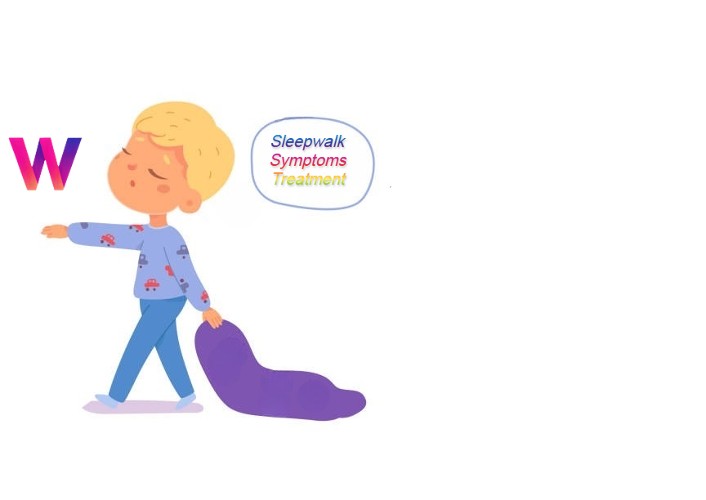Sleepwalking, also known as somnambulism, is when you get up and walk around while still asleep. Sleepwalking usually happens at night when you’re in the deepest phase of sleep. Sleepwalking can be scary because most people aren’t aware that they’re doing it, but with proper education about the causes and symptoms of sleepwalking, you can avoid those dangerous falls and injuries associated with sleepwalking and get back to sleeping peacefully again. Learn more about what causes sleepwalking, how to prevent it, and how to treat it here!
What is sleepwalking?
Sleepwalking is a sleep disorder that’s most common in children, but can also affect adults. Sleepwalkers experience a form of amnesia where they wander around while sleeping and engage in various activities like sitting up, walking, eating or talking. Sometimes they can even leave their beds while sleeping. Sleepwalkers are likely to continue these activities even if interrupted. They usually remain asleep throughout their sleepwalking episodes and are not fully aware of what they’re doing during these sleep walks. Although there is no real cure for sleepwalking at present, certain natural remedies for sleepwalking can help you manage it effectively with reduced instances of walk-ins during your nights—while ensuring your health remains intact.
Are There Any Natural Remedies for Sleepwalking?
Over-the-counter sleep aids can help you get a good night’s rest, but there are many natural remedies for sleepwalking that can also work well. Melatonin is one such natural remedy; some studies have shown that taking melatonin an hour before bedtime can help with sleep disorders, including sleep walking. Aromatherapy has also been shown to be an effective treatment for sleeptalking and other sleep problems. Chamomile essential oil is often used because it has calming properties and helps induce relaxation. Lavender essential oil has a similar effect on the body and brain chemistry, so these two essential oils have similar effects when treating sleeptalking or insomnia problems like night terrors or panic attacks at night. Other essential oils have also been found to treat sleep disorders in general and sleeptalking specifically, though their effectiveness hasn’t yet been scientifically studied. These include jasmine, bergamot, rosewood, mandarin orange, lime and tangerine. Many of these scents are also used in aromatherapy massage treatments as well. If you want something to drink before bed rather than put on your skin or inhale near your nose as aromatherapy requires, consider drinking chamomile tea or lavender tea 30 minutes prior to going to sleep. Both herbal teas contain calming ingredients that help reduce stress levels which may be contributing factors if you’re having problems sleeping regularly due sleepwalking episodes.
Treatments For Sleepwalking
Although not harmful in and of itself, sleepwalking can be a sign of other underlying problems that could become serious if left untreated. It’s best to see your doctor to rule out sleep disorders like restless leg syndrome, obstructive sleep apnea or narcolepsy before trying natural treatments for sleepwalking. Once you’ve been diagnosed with a more serious disorder, treatment options like lifestyle changes and medications will be discussed. Read on for some simple ways you can treat common causes of sleepwalking at home. For people who sleepwalk due to emotional issues, treating those issues (and preventing them from arising again) is key. For example, sleeping with a partner or cat may cause you to awaken when they enter the room or make noise; try keeping them away from your bed as a solution. Other helpful tactics include writing down what triggers episodes in question and avoiding those triggers whenever possible. Keeping stress levels down—even when sleepwalking occurs naturally—will also reduce how often it happens overall; research has shown that people who were trained in self-hypnosis (and practiced regularly) experienced reduced symptoms of stress-induced sleepwalking over time.
